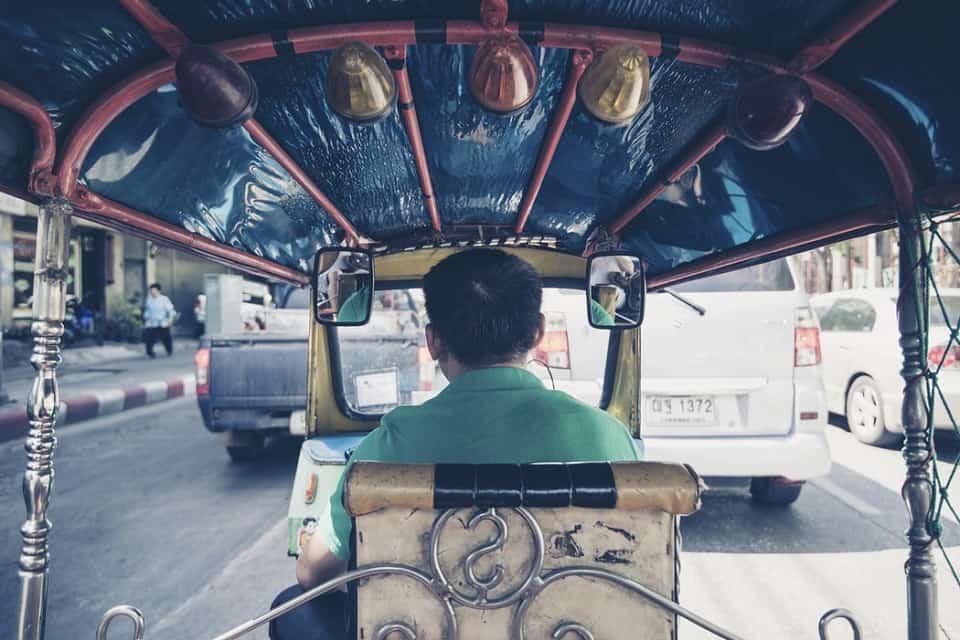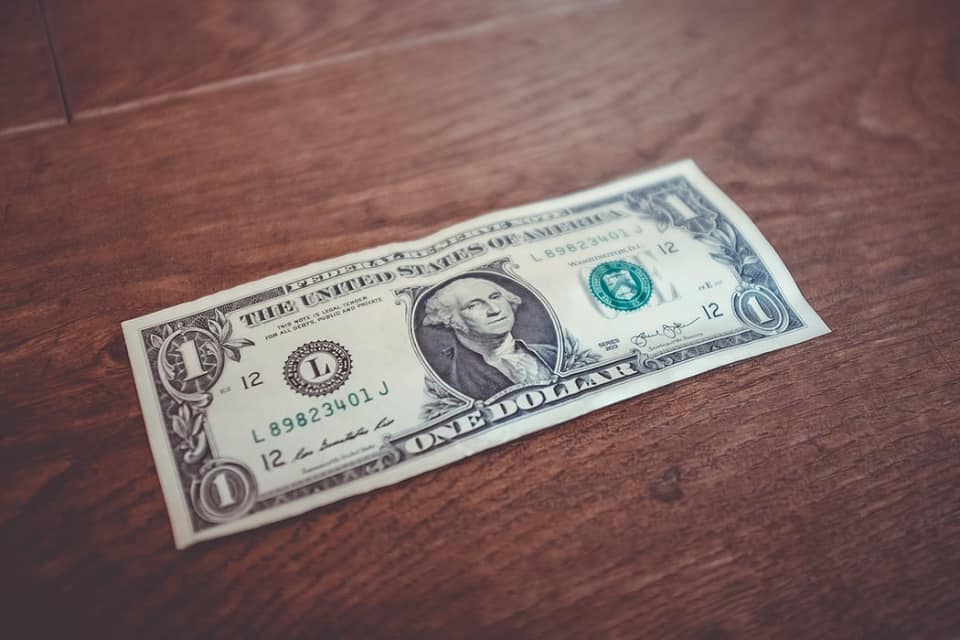OK, as a digital nomad, you’re going to be traveling the world and working and that means that sooner or later; it’s likely that you’re going to come face to face with a travel scam (or two or three). The good news is that if you’re forewarned, you’re going to have no problem not getting ripped off.
So, we’ve got 25 travel scams to share with you today which include taxi drivers, closed hotels, pickpockets, find the lady and a whole bunch of other bad folks and we explain how to avoid them too.

Table of Contents
Your Number One Weapon Against Travel Scams
Your number one weapon against travel scams is using your brain. Google a destination before you go – what should you watch out for? What are local prices like? And you’ll be in a good frame of mind to avoid the obvious.
The second part of this is simple – employ common sense. You do not make friends, instantly, with random strangers in the street back home, don’t do it abroad. Also, avoid allowing greed or the desire to save a couple of bucks win out over sanity.
Most travel scams require the active participation of the victim for the perpetrator to get away with it.
The 25 Most Common Travel Scams
Taxi Drivers: The Leading Cause Of Travel Scams

Taxi drivers must account for more than 50% of all scams in the traveler’s universe. From the organized tuk-tuk mafia of Pattaya (good luck paying a fair rate to go anywhere there) to the more informal “meter not working, sir” or the unlicensed cab owner offering you a “reduced fare” (which is actually 5 times what you’d pay on a meter) outside of the airport. Taxi drivers can be proper thieves.
The best defense that you have against this is Grab Taxi or Uber. They offer a fixed price service – no negotiation required. Your second-best defense is to check inside the airport for a taxi counter (most airports have these now) and pre-book a taxi at a fixed price (you may pay a couple of bucks more than you might if you flagged one down but you won’t be ripped off, either).
If you have to flag down taxis, work out what the going rate is and if they won’t use their meter – negotiate until you have a fair price.
If you find yourself looking at the meter and thinking “why is that going so fast?” Ask the driver to stop, get out and find another taxi. Doctored taxi meters are becoming rarer but they’re still a thing in some places.
I once found myself stranded by the side of the highway in Sofia, Bulgaria having made the driver stop when the meter hit the equivalent of £20 – for what should have been a £1 fare. Fortunately, I had friends with me and we did, eventually, get another taxi.
“Sorry Sir, Your Hotel Is Closed Now”
Technically, this is a scam still run by taxi drivers, tuk-tuk drivers and occasionally chancers stood on street corners (which is why it gets a separate line). If you booked your accommodation on Booking.com or Agoda or whatever, the odds of it being closed are next to nothing.
What they want you to do is cancel your booking and then go and stay at their “friend’s hotel”. A friend that pays them a fat commission and gives you a room full of cockroaches for three times the going rate.
Buy a SIM card as soon as you land at the airport. If somebody tries to pull this nonsense with you – call the hotel and confirm they are still there. Then find another taxi.
Light-Fingered Bar Stewards
Pickpockets are another common set of scammers but if they get their way, you’re unlikely to meet them face-to-face.
The most common line of attack is the “bump and grab”. That is one (or more) members of the pickpocketing gang deliberately bump into you and while you’re trying to resolve this… somebody else robs you because you’re distracted.
To avoid this – try and position yourself in a seat with all your valuables clutched tight. If that’s not possible, make sure you’ve spread your valuables (and your money and cards) among your luggage and pockets – that way if you do get robbed, you only lose a little.
We’ve Got Free Airline Tickets
You’ll find this scam on social media. Somebody will be offering 2 free flights to somewhere because they can’t use them. This may require you to share a post (Facebook will not track this kind of giveaway even it was legitimate and it’s not) or visit a site to claim.
If you visit a website, it may look official, but the odds are 100% guaranteed that you’re on a phishing hoax site and about to hand over enough data to make identity fraud in your name, really easy.
In truth, while there are real sweepstakes out there which occasionally throw flights in as prizes – nobody gives away 2 airline tickets to a random stranger on Facebook. This is a scam you can beat by just making sure that your greed doesn’t get the better of you.
Find The Lady!
It is tough to believe that there’s anybody out there who still falls for these cons, but we’ve occasionally seen them being run in the wild, so somebody must fall for them.
It might be three playing cards where you need to find the queen or three cups with a ball under one of them, and it doesn’t really matter what it is because it’s a con. They employ sleight of hand to move the item around – so that you can’t win.
The Official Who Isn’t Official
This is one where if you’d done your research, you wouldn’t get scammed. Fake officials abound in third world countries. They get a nice uniform and rely on the fact that a stupid foreigner won’t recognize that it’s not real.
They ask to inspect your documents and when you hand them over, they either steal them or refuse to give them back until you pay a fee.
You avoid this by refusing to hand your documents over but offer to take them to a police station where you’d be only too pleased for them to review your documents. They’ll suddenly find better things to do.
“I Need You To Write For Me”

This is quite a clever con. It involves a friendly local asking where you are from and then saying they need you to help write them a letter to someone in your country and they offer to make you some coffee or tea while they do it.
Then they drag you into a shop to write the letter and while you drink that tea/coffee they put the hard sell on you to buy some over-priced rubbish.
We’d recommend that you never go anywhere with someone who stops you on the street (you’d recognize this for insanity if you were at home and some random walked up to you and said “come with me”) and that you recognize the chances of somebody, in a third world country, knowing someone from exactly where you come from are about zero.
The On Train Upgrade Scam
This is common in India and it might exist elsewhere. It’s a play on the fake official game – what they do is come around to inspect your tickets (dressed as an inspector) and then insist you are in the wrong class and need to pay an “upgrade fee”.
It’s hard to avoid this one but you can improve your chances by checking exactly what you paid for at the station and if you’re buying 2nd/3rd class tickets find out what the real on train upgrade fees are while you’re there. No member of the train staff will ask for more than the real fare but a scammer will.
Here’s Some “Free” Junk
Bracelets seem to be popular the world over. “Lucky heather” is popular in Europe. Whenever anybody gives you something like this for free, they’re working on the principle that as soon as you accept it – you’ll be too embarrassed not to give them money when they demand it. In short, they rely on the fact that you don’t want the attention.
It’s best to refuse anything and if they do manage to sidle up next to you and slap a bracelet on your wrist take it off and give it back immediately. Say, “No thank you!” loudly and then walk away. Ignore them if they get pushy.
The Bus Bleeders
Buses are a horror show of scammers in some places. Though, we freely acknowledge they’re getting better in many parts of the world too.
Watch out for anyone offering to help you move your things (they or an accomplice of theirs may be looking to go through it for valuables later). They may also just grab your bag and make a run for it (or throw it to a runner by the door).
Avoid overly helpful people on buses and keep your possessions as close to you as possible. If I take a bus, I make sure all my electronic kit is in bags that go on the bus (not in the hold where things get stolen all the time) and that they’re always in my direct line of sight if not in my lap or on the floor wedged between my legs.
It’s Only A Little Spill
This is a favorite of pickpockets the world over. One girl (or guy) walks up to you and throws some sort of liquid over you, they apologize for the accident and help to dry you off and while they’re poking and prodding at you – an accomplice goes through your pockets and bags and helps themselves.
Watch out for being boxed in on crowded streets. Don’t be afraid to push someone away from you if they spill things and then move before attending to the cleanup yourself.
Fake Money Is Fake Money

Counterfeit money scams are rife around the world. I fell for it once, in China where they passed me a 20 RMB bill which quite frankly looked printed on a cheap inkjet, I’d just missed it in a handful of change. At around $5 – that’s not the end of the word, mind you.
However, many people get taken for much more than this. One of the oldest tricks in the book is in restaurants, you pay with a large denomination bill, they inspect it and give it back saying it’s fake. It is because they just swapped your real one for a fake. They may do this several times if you let them do it.
Your only defense here is to take a very long hard look at some real currency bought in a bank and make sure all your notes are legit and then be prepared to call the police if you encounter scammers like these.
Motorbike Madness
Southeast Asia’s favorite scam is the motorbike (or sometimes jet-ski or rental car) damage payment. You rent the bike and when you bring it back – there’s a bunch of damage they discover you need to pay to fix at about 40 times what it costs.
To avoid this – never leave your passport as a deposit, only leave a reasonable cash deposit, take photographs of all aspects of your bike and then get the shopkeeper’s photo too, buy your own lock for the bike and store it well. It’s not unknown for the disreputable owner to send someone out to trash the bike while it’s with you!
And finally, if you have travel insurance – they ought to pay for this if it does happen.
ATM Skimmers
The ATM scam basically involves someone attaching a skimming device to the ATM so that you put your card in, you put your PIN in and get some money. The scammer, on the other hand, gets a copy of your card and your PIN so that they can get your money later.
To avoid these – use ATMs inside banks or shopping malls if you can. Avoid dodgy locations with no CCTV in evidence if at all possible. Check the ATM for anything that is loose or doesn’t feel right. It is better to walk a bit more and find another ATM than to end up with $0 in the bank while you’re in Phnom Penh.
The “You So Handsum Man” Plan
There is no equivalent scam for women because women don’t tend to do their thinking with their genitals in the same way that men do.
This works when you, a perfect 5 on a good night, hit up a local club and soon find yourself chatting to a perfect 10. You have a great time but at the end of the night, she disappears.
You, on the other hand, find yourself with a bill for her drinks, her friend’s drinks and as many other drinks as they thought they could stick on your tab and at a price roughly 10 times that which the locals would pay. They have some large gentlemen waiting to explain where you went wrong if you don’t pay.
So, this isn’t to say you can’t find a massive hottie in a developing nation that wants to be with you but it is to say – beware massive hotties coming up to you out of nowhere and dragging you out clubbing. There is no special eau de cologne of travel which turns you into a sex god, sadly for all of us.
The One Ring To Fool Them All
This is a variation on the free stuff trick. You are approached by someone who has a mobile phone or a ring or some other mildly valuable item (which they probably stole from someone else) and asked, “did you drop this?”
When you say “no”, they try to sell it to you anyway. Then they become very aggressive about the idea of you buying it.
It’s best to laugh and walk away at this point. Don’t get involved in a public row. It’s not worth it and they may have friends nearby waiting to step in if things get really heated.
“No Miss, It’s Closed For Now”

They love this one in Bangkok. You’ll be approaching a lovely place like the Dusit Palace (the royal residence) for a bit of tourism when a friendly local appears from nowhere and says it’s closed today (or for lunch or whatever) and they offer to take you somewhere else instead.
Don’t go. It’s not closed. Go and check for yourself. It’s best to ignore anyone who stops you in the street to offer helpful advice – unless it’s “go back sir, there are riots down there and you might get hurt”. That’s the kind of advice you probably should pay attention to.
“Please Sign Our Petition”
It’s an oldie but goldie. It normally involves an attractive person or someone with a handicap (deaf people are popular for this trick) stopping to ask you to sign a petition. You stop and sign, but they quickly begin to demand a cash donation.
Even if you refuse, they often have a helper going through your pockets and/or bag while you debate the issue. The best thing to do is just keep walking and ignore people imploring you to stop. I find that if you wear headphones, it’s easy to pretend that you never heard them in the first place.
You Bought This, But Got That
Watch out for people who need to wrap your purchases out of sight for you. Everyone falls for this little trick at some point or another. I made this mistake in Egypt. I bought some attractive Egyptian figurines as presents for friends. They were of good quality.
The ones they wrapped out back, on the other hand, were total garbage and they all broke in the bag before I’d reached my hotel room. Fortunately, on that trip, my expense account gave me such a generous per diem rate that I could shrug off the loss.
Always double-check that you’re getting what you paid for. My loss was pretty small, but this can happen with expensive items like jewelry or Persian rugs too.
The Worst Drug Deal
If you follow our advice on never buying drugs in Southeast Asia, you’ll never fall for this but if you do… it goes like this.
You’re at a party venue. A friendly local offers to sell you something to make the party even better. You give them the money. A minute later a local cop (and a real one, not a fake one) is there going through your pockets and you’re under arrest.
You have two choices pay an extortionate bribe right there and then or go to jail. Just in case you are wondering – don’t compound your mistake, pay the bribe.
The Money All Looks The Same
This has probably happened to every traveler at some point and they didn’t notice. Many countries have bills of several different denominations that look nearly the same. In Vietnam, for example, the 500,000 Dong and 20,000 Dong bills are similar enough that it’s easy to confuse the two.
The scammer relies on handing you a big bunch of change and hoping you won’t count it but will throw it in your pocket and leave. It’s easy to avoid, mind you, count your change as soon as you get it and make them rectify any “mistakes”.
Airbnb Bandits

It’s only been a week since Airbnb was outed for essentially facilitating scams on its marketplace. The scammer offers a beautiful apartment but a week before you arrive… boom! There’s been an overbooking and you can’t have that place, but they do have a similar one for the same money.
It’s not similar. It’s a toilet. But they rely on the fact that if you stay without causing a fuss for a single day, Airbnb pays them and robs you. Now, Airbnb has promised to address this but… we wouldn’t hold your breath. Airbnb is the modern-day equivalent of legalized robbery at the best of times.
The Dodgy Day Tour
Tour operators aren’t generally in the business of making huge margins. If you find a day tour that is significantly cheaper than any of the others offered locally – it’s almost always a scam.
The deal is that they get a subsidy from all the shops that your tour will stop at and in exchange they will bully and harangue you at every turn to spend money. Often, the things you buy at these stores will be dreadful quality and overpriced, just to add a little more insult to the injury.
These kinds of tours are so common in China that they are now illegal in Hong Kong when one tour guide bullied a lady into a heart attack because she wouldn’t buy any jewelry in a store. Seriously.
The alternative is that they offer an unsafe, ultra-cost cutting experience which is no fun at all.
The Cheap Fare Finagle
You turn up at a bus terminal or coach station and somebody approaches you because they’ve got two tickets to your destination (would you believe your luck?) and they can’t use them, so you can have them cheaply.
These will either be fake or expired when you try to get on the bus. Just buy your tickets using an app or from the official booth. It will save you money in the long run. Touts are always a bad idea.
The Bad Bar Bill

Thailand is notorious for this one. Go into a bar, start drinking and run a tab. When you get to the end of the night, it appears that your liver is a gold medal winner in the alcoholic’s world cup. You need to pay for 70 beers or the big gentleman at the door will bash your head in.
Always pay as you go- when you get a new beer pay for it, don’t let anyone run a tab for you. Don’t let bar staff (or ladies of the evening) keep pushing paper chits into a mug, you’re asking to be robbed blind.
Conclusion
It is unlikely that anyone walks the world without ever getting scammed at all, but you can reduce the chances of being scammed on your digital nomad travels, substantially.
Don’t forget that common sense is often your best guide but reading up on a place and being prepared to take action when you sense a scam is essential too.
